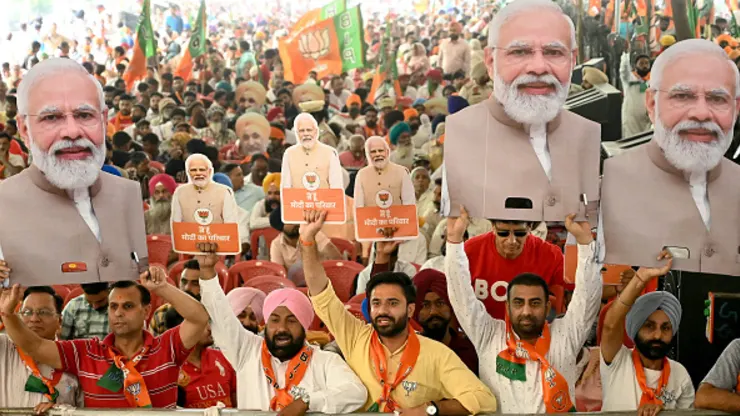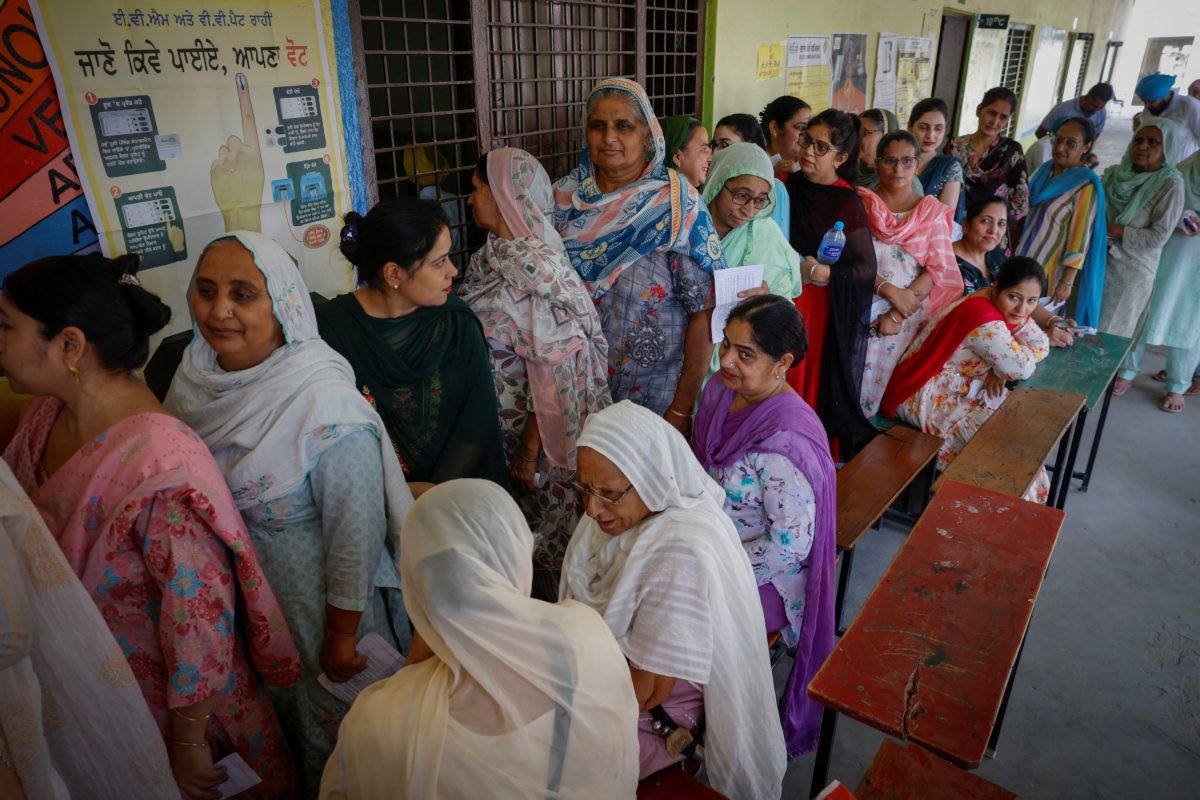
Exit polls suggest that Indian Prime Minister Narendra Modi is poised to secure a third term in office following the conclusion of a six-week-long general election. Modi, the leader of the right-wing Bharatiya Janata Party (BJP), has been at the helm of India's government since 2014, and the latest exit polling data indicates that he will continue to serve as the country's chief executive for another five years.
As the polling process concluded on Saturday, with official results expected on Tuesday, Modi preemptively took to social media to declare victory. "I can say with confidence that the people of India have voted in record numbers to re-elect the National Democratic Alliance (NDA) government," Modi posted on X (formerly Twitter). He praised the NDA's accomplishments, emphasizing the coalition's work in improving the lives of the poor, marginalized, and downtrodden, and for propelling India to become the fifth-largest global economy.

The NDA is a conservative political alliance led by the BJP and includes 40 parties. In the outgoing Lok Sabha, the lower house of Parliament, the NDA held 342 of the 543 seats. Exit polls now suggest that this number could surpass 350, comfortably above the majority threshold of 272 and approaching the 362 seats needed for a two-thirds majority. Such a strong showing would further solidify Modi's mandate and the NDA's legislative power.
Opposing the NDA in the 2024 general election was the Indian National Developmental Inclusive Alliance (INDIA), a centrist coalition formed to challenge Modi's dominance. However, the exit polling data projects that the INDIA coalition will win between 125 and 182 seats, falling significantly short of posing a substantial challenge to the NDA's supremacy. Modi critiqued the INDIA coalition, accusing them of focusing solely on criticizing him without presenting a clear and forward-looking vision for the nation. "The opportunistic INDI Alliance failed to strike a chord with the voters," he posted. "They are casteist, communal, and corrupt. This alliance, aimed to protect a handful of dynasties, failed to present a futuristic vision for the nation."
If Modi, 73, secures this third term, he will join Jawaharlal Nehru, India's first Prime Minister, as the only leaders to have been elected to the office three times since the establishment of the role in 1947. Modi's continued leadership would signify a consolidation of his political legacy and an endorsement of his government's policies and vision for India.
The BJP's anticipated victory also reflects the broader public support for Modi's administration, which has focused on economic reforms, infrastructure development, and national security. Despite facing criticism on various fronts, including handling of the economy, human rights issues, and social policies, Modi's personal popularity and the BJP's effective campaign strategies have resonated with a large segment of the Indian electorate.
The upcoming official results will confirm the exit poll predictions, but the early indications point to a continued dominance of Modi and the BJP in Indian politics. This anticipated victory underscores the enduring appeal of Modi's leadership and the BJP's ideological framework, setting the stage for another five years of their governance in the world's largest democracy.











